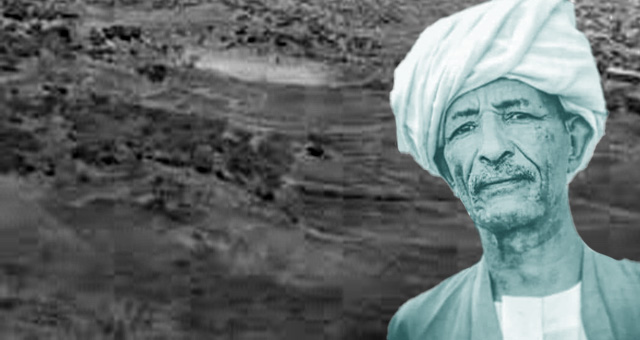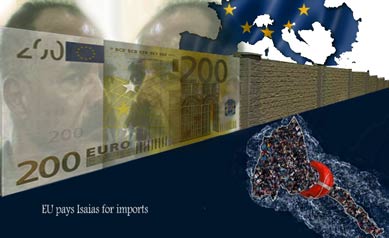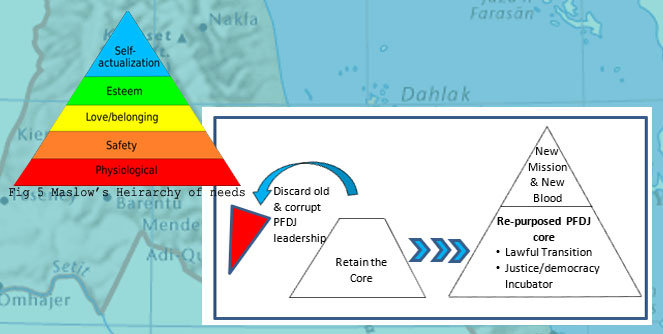Brief Eulogy to Osman Mohammed Ismail

Yesterday, early morning of the 4th of November 2021, Eritrea and its people have once again lost one of their national liberation armed struggle heroes. Osman Mohamnmed Ismail had passed away in Cairo, Egypt, after fighting illness for months.
Osman had joined in 1965 the ranks of the Eritrean Liberation Front (ELF) at quite an early age. He enlisted with the 4th Zone, one of the military command zones in to which the ELF forces were deployed at the time. As a young fighter, he served under the command of Mohammed Ali Omaru in the region of the Northern Red Sea (Samhar). As an extremely insightful fighter, Osman Mohammed Ismail had quickly earned the attention of his fellow fighters and commanders. He was a focused and easily lovable fighter, and had shown from early time of his presence in the ranks of the army that he was a prospective brilliant military-political leader, which he had soon markedly demonstrated within the then ELF reformist trend movement whose goal was the revocation of the zonal deployment military order that had at the time proven redundantly deficient and re-unification of the Eritrean Liberation Army (ELA) under one command and control center.
Osman Mohammed and his fellow fighters’ role and effort reached fruition when the first phase of their corrective measures succeeded in 1967 as the tripartite union of three of the five zonal commands, which opened the way to the abandoning of the de-centralized command zones. This became a prelude to the 1968 military conference at Adobaha that had united the five zones under one political-military leadership that came to be known as the General Command.
Subsequent to that eventful episode, the ELF and the Eritrean liberation struggle arena as a whole had witnessed landmark episodes both militarily and politically, one of which was the holding of the first national congress of 1971 which embraced a wide military and civilian representation, and from which an elaborate national democratic political program, organizational guidelines and a democratically elected political leadership had emerged. Throughout the journey to that significant development, Osman Mohammed’s role was conspicuously was marked by his fellow rank and file fighters as well as his senior commanders.
From that time on, Osman Mohammed rose in the ladder of the military hierarchy until the ELF Second National Congress of 1975, which, following the 1974 political events in Ethiopia that resulted in the toppling of the government of Emperor Hailesellassie I and emergence of the Ethiopian Military junta under Colonel Mengistu Hailemariam, had significantly reflected in the political and military developments that had impacted the Eritrean people’s liberation struggle.
One of the qualitative and quantitative developments was the closing of national ranks of the nearly entire Eritrean people and rallying behind the patriotic liberation struggle movement. The Eritrean youth had, since the Spring of 1975, joined the ELF in large numbers that had swelled the rank and file of the ELA. This had generated transformation of the military deployment formation order from the then working platoon formation to higher levels of brigades. The command of one of the brigades (72) was given to Osman Mohammed Ismail. It was at that level that he had demonstrated his leadership potential merged with political acumen that his fighters had admired. His military skills and foresight were augmented by his sociable and friendly character as a person. His personal social concern for the wellbeing and needs of his fighters had become on every one’s conversation encounters by those who had associated with him Osman Mohammed Ismail whether in the battle fields or personal affairs of his fighters. He was known for not eating a meal or drinking before those who happened to be present around him had eaten or drunk. This jovial and sociable had spread among the ELF rank and leadership throughout the ELF and its successor formations, the last of which has been the Eritrean National Salvation Front, which he had served as military leader and member of the higher political leadership. His brilliance and wisdom in leadership and social life will be greatly missed by his fellow Eritreans.
May his soul rest in eternal peace, and his children, wife, his comrades-in-struggle and people of Eritrea whose because he had served throughout his life be graced by the power to work out this deep grief and his absences from the struggle arena.




Awate Forum